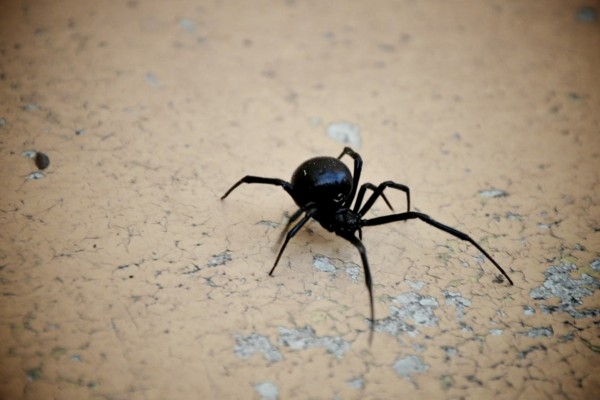The most poisonous spider in Britain?
According to an article by BT in September 2014, the most poisonous spider found in Britain is the false widow spider. This species originates from the balmy Canary Islands but has been discovered in numerous locations in England, chiefly on the south and east coast.
Rarely dangerous
Bites can quickly result in severe flu-like symptoms and swelling, although, fortunately, according to John Tweddle of the life sciences department of London’s Natural History Museum, these spiders rarely bite and are not instinctively aggressive towards people. Indeed, according to Mark Champion of the Wildlife Trust, the false widow spider bite is no more severe than a wasp sting.
Huntsman spider
In August 2014, the seven inch long Huntsman spider was discovered near the historic port of Hastings on the English south coast. The species, which is a common site in Australia, was found at a distribution site in a crate from the Far East and is noted for its eight eyes, commonly residing in dark locations such as beneath rocks. However, the Huntsman spider often bites other insects and is unlikely to attack humans.
Brazilian wandering spider
In November 2013, a mother from London discovered dozens of deadly Brazilian wandering spiders on a banana she had bought from Sainsbury’s, prompting her to contact a pest control company.
The Brazilian wandering spider, which is also nicknamed the ‘banana spider’ releases a special type of venom that can quickly cause paralysis and even asphyxiation in some cases. The family, which did receive an apology from Sainsbury’s, had to stay in a hotel while their home was fumigated. The supermarket paid for the cleaning and the hotel.
Black widow spider
One of the most dangerous venomous spiders in the world, the black widow was uncovered in containers at a company in Norfolk as staff were unloading tyres that had arrived from the US state of Arizona, where the species is well known. The spiders, which were spotted between November 2012 and January 2013, somehow managed to find their way into containers as they were being loaded in the Arizona desert, although, like many other species, they typically bite only when they perceive a threat.
Wasp spider
Another new arrival to the UK is the wasp spider, whose bite can cause severe pain in the groin area. However, the species is typically only present between June and September and has rarely been spotted in the UK.
A rare sight on UK territory
In September 2013, the wasp spider was found at a nature reserve in East Anglia, one of just five sightings of the species between 2006 and 2013. However, the spider actually arrived in the UK shortly after the First World War, when it was probably transported from southern Europe.
If you don’t attack them, they won’t attack you
If you ever come across any of these spiders, do not act like an aggressor; keep calm and do not disturb them. If you have an infestation in your home or business, contact your local pest control as soon as possible.
Mark Stanford is the Area Manager for one of London’s most trusted and cost-effective pest control firms – Empire Pest Control.

